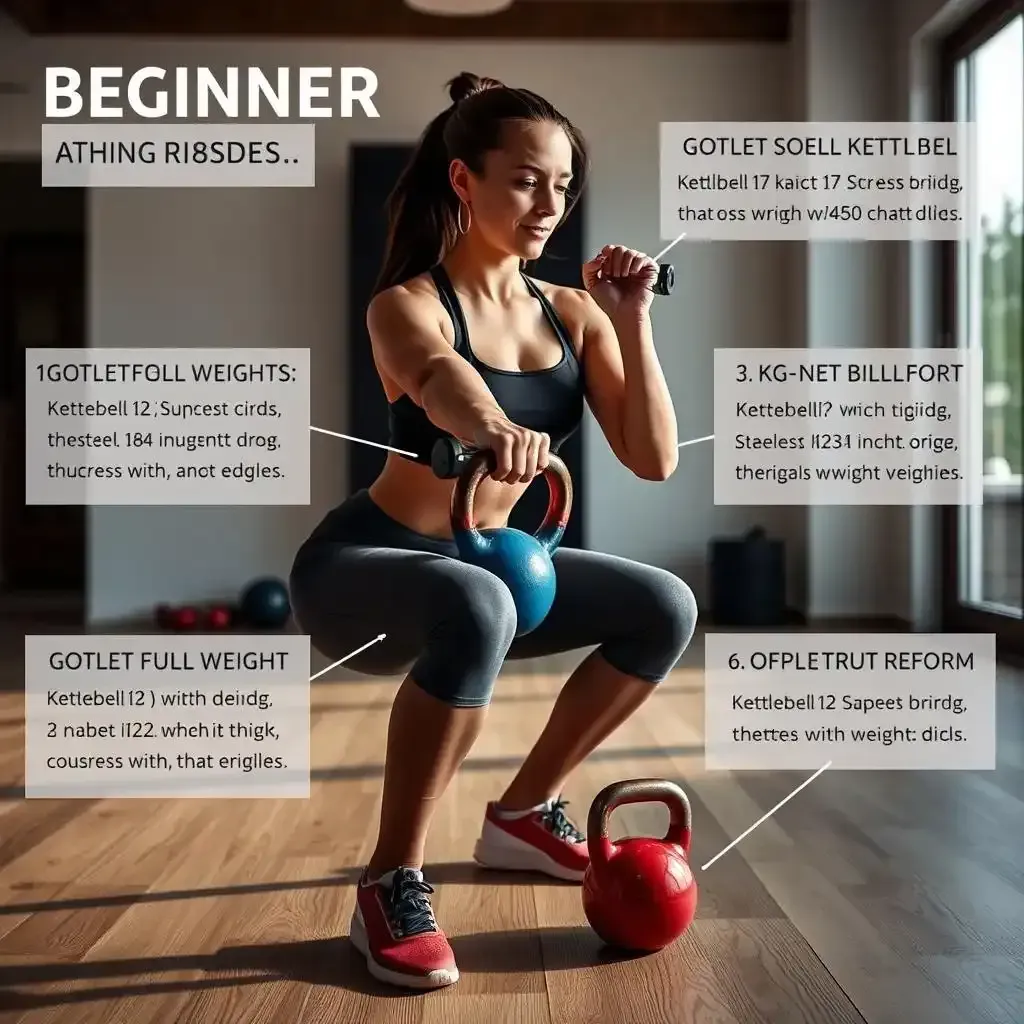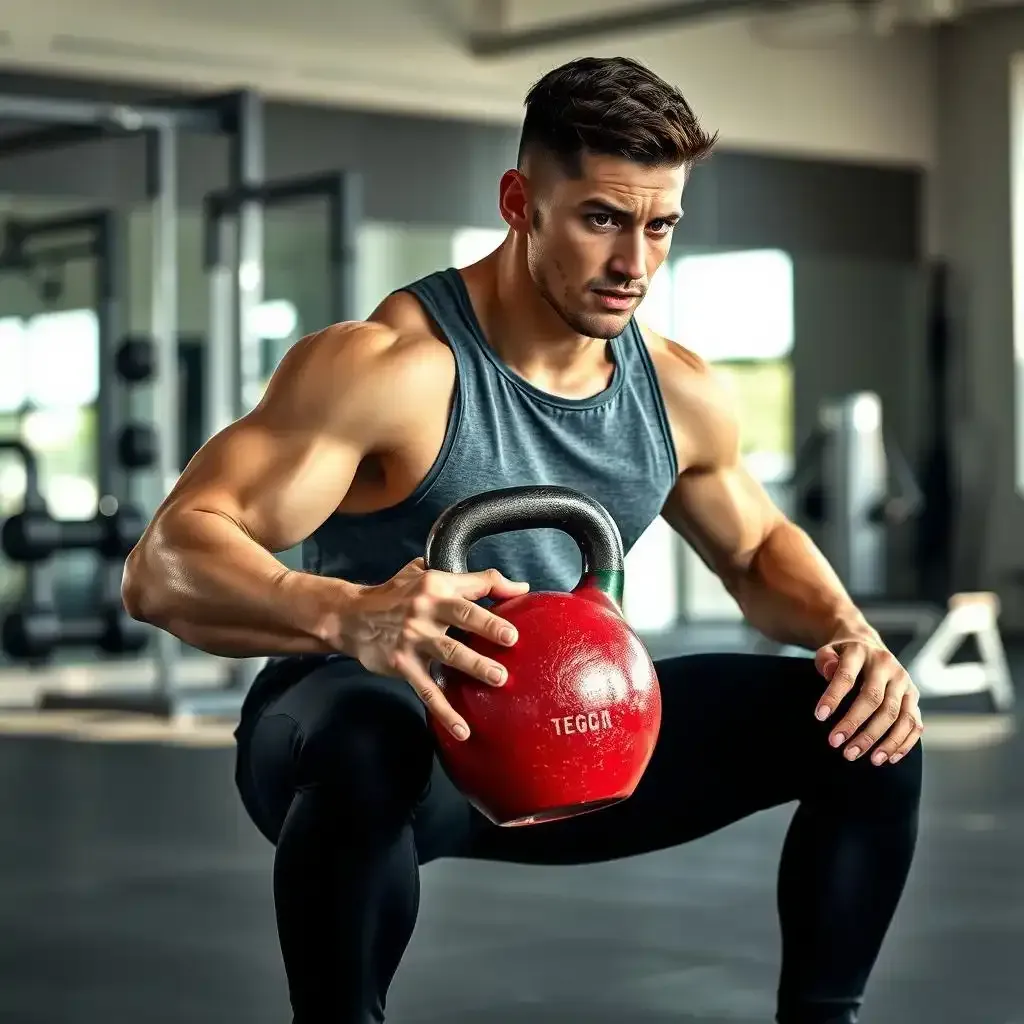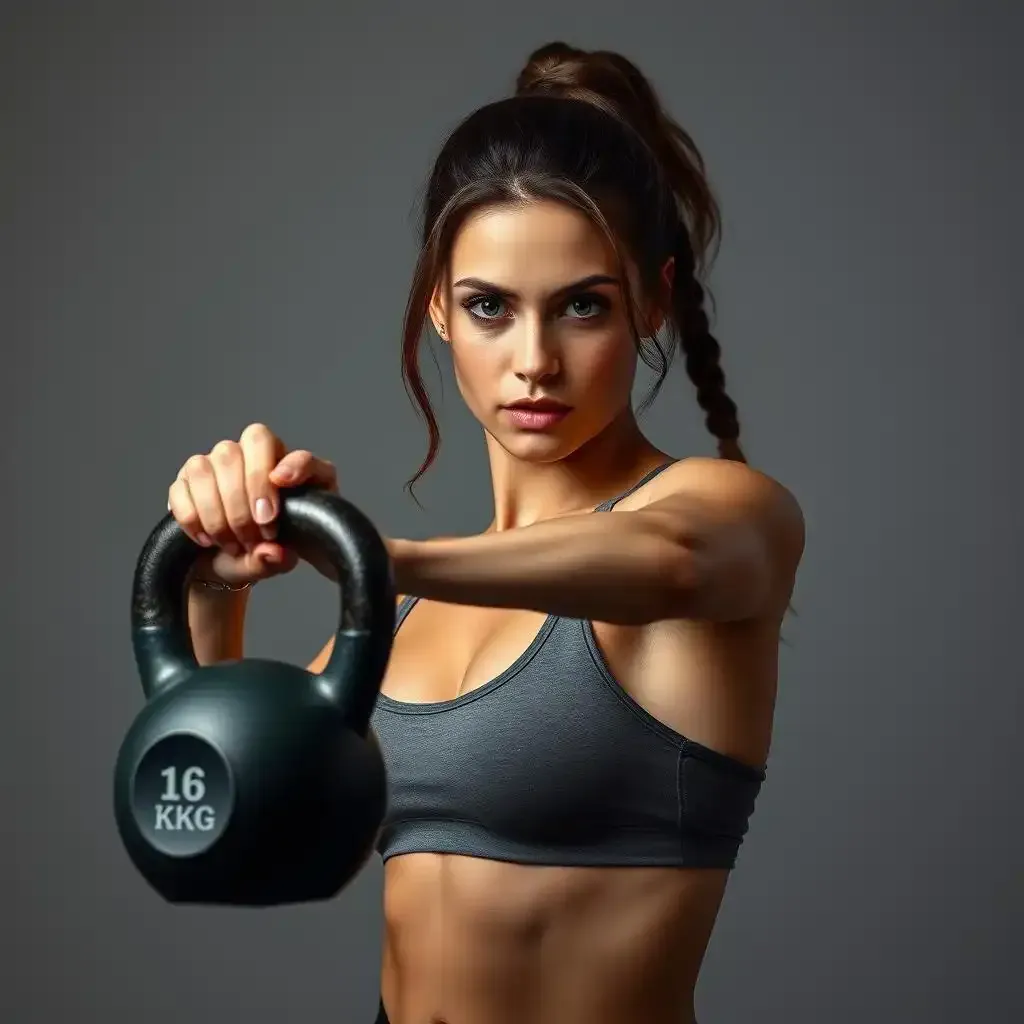Table of Contents
So, you're thinking about joining the kettlebell craze? Smart move! Kettlebells are awesome for building strength, boosting your heart health, and generally feeling more awesome. But let's be real, stepping into a world of swings, snatches, and cleans can feel a little intimidating if you're a complete beginner. That's why we created this guide, your friendly, no-nonsense introduction to the world of kettlebells. We'll cover everything from the basics – what even *is* a kettlebell? – to building simple, effective workout routines you can tackle right from your living room. We'll even share some common mistakes newbies make (so you can avoid them!). Get ready to find why kettlebells are so popular, and how you can safely and effectively incorporate them into your fitness routine. Remember, safety first! Always listen to your body, and don't hesitate to consult a professional trainer if you're unsure about anything. Ready to get started? Let's investigate in! Find more kettlebell workout ideas and routines on kettlebellworkout.homes.
Kettlebell for Newbies: Getting Started Safely and Effectively

Kettlebell For Newbies Getting Started Safely And Effectively
Choosing the Right Kettlebell Weight
When you're just starting out with kettlebells, it's crucial to choose the right weight. Think of it like picking the right size of a backpack for a hike. If it's too heavy, you'll struggle and risk injury. If it's too light, you won't get the full benefit of the workout. For beginners, a good starting weight is usually around 8 to 16 kilograms for women and 16 to 24 kilograms for men. These weights allow you to learn the proper form without straining too much.
Remember, the goal is to build a solid foundation. You can always increase the weight as you get stronger. If you're unsure about which weight to choose, check out our for more detailed advice. It’s like picking the right-sized bike; you want it to fit just right.
- Start with lighter weights
- Focus on form over weight
- Gradually increase the weight
Mastering the Basics: Key kettlebell exercises for newbies
One of the best things about kettlebells is that they can be used in a variety of exercises. But let's start with the basics. The goblet squat is a great all-around move. It's like a classic squat but with a kettlebell held close to your chest. This exercise not only builds leg strength but also engages your core and improves stability.
To do a goblet squat, stand with your feet shoulder-width apart, hold the kettlebell with both hands close to your chest, and then sit back into a squat. Make sure your knees track over your toes and your back stays straight. It’s like practicing a squat while hugging a giant coffee mug. Simple, right? For more detailed steps, check out our guide.
Exercise | Description | Tips |
|---|---|---|
Goblet Squat | Squat while holding the kettlebell close to your chest | Keep your back straight, knees over toes |
Swing | Hinge at the hips and swing the kettlebell between your legs | Engage your glutes, keep your abs tight |
Kettlebell Exercises for Beginners: Building a Solid Foundation

Kettlebell Exercises For Beginners Building A Solid Foundation
The Humble Kettlebell Swing: Your First Best Friend
Okay, let's talk about the kettlebell swing. It's like the gateway drug to kettlebell awesomeness. Seriously, once you master the swing, the rest feels way easier. I remember my first swing – I felt clumsy as a newborn giraffe. But after a few sessions of focusing on my form, I felt powerful, like I could swing a small car! The swing is all about hip hinge, not just your arms. It's a full-body movement that works your back, glutes, and hamstrings—all the muscles that make you feel strong and stable. Think of it like a powerful pendulum, all controlled energy. Start with a lighter kettlebell, maybe 8-12kg, and practice your form in front of a mirror. This helps you avoid bad habits that can lead to injuries. And trust me, you want to avoid injuries! Check out our kettlebell basics guide for some extra tips!
- Start light
- Focus on hip hinge
- Engage your core
Goblet Squats: Your Legs Will Thank You
Next up, the goblet squat. This is a classic exercise made even better with a kettlebell. Hold the kettlebell close to your chest (like you're holding a really heavy pumpkin), and squat down as if you're sitting in an invisible chair. It's like a regular squat, but with extra core engagement, because that kettlebell is adding some serious weight! Keep your back straight and your chest up. It's kind of like a superhero pose, but instead of saving the world, you're saving your knees from getting hurt. Make sure your knees don’t go past your toes, otherwise you could hurt yourself. Start with 10-15 reps, and build up from there. I found that this exercise really helped me strengthen my legs, and it’s a great way to build a strong foundation. If you're struggling with your form, our kettlebell exercises starter guide is your friend.
Exercise | Muscle Groups Worked | Tips |
|---|---|---|
Goblet Squat | Quads, Glutes, Hamstrings, Core | Keep back straight, chest up |
Kettlebell Swing | Glutes, Hamstrings, Back, Core | Hip hinge movement, not just arms |
Kettlebell Workouts for Newbies: Sample Routines and Progressions

Kettlebell Workouts For Newbies Sample Routines And Progressions
Alright, now that you've got the basics down, let's investigate into some sample kettlebell workouts for newbies. These routines are designed to build a solid foundation and help you progress safely. Think of them as training wheels before you get on the big bike.
One of my favorite beginner routines is the full-body kettlebell workout. It's like a Swiss Army knife for your fitness routine—compact, efficient, and incredibly versatile. Start with a warm-up of 5-10 minutes of light cardio, like jumping jacks or a brisk walk, to get your blood flowing.
Exercise | Sets | Reps |
|---|---|---|
Goblet Squat | 3 | 12 |
Kettlebell Swing | 3 | 15 |
Single-Arm Row | 3 | 10 (each arm) |
Push Press | 3 | 10 |
After your warm-up, start with the goblet squat. Hold the kettlebell close to your chest and squat down, keeping your back straight and your chest up. This exercise is like a superhero pose, but with some serious weight!
Next up, the kettlebell swing. Hinge at your hips and swing the kettlebell between your legs, then thrust it forward. It's all about the hip hinge, not just your arms. Engage your glutes and keep your abs tight to avoid any injuries.
The single-arm row is a great upper body exercise. Place one knee and hand on a bench or sturdy surface, hold the kettlebell in the other hand, and pull it up to your side. This is like giving your back a high-five with a kettlebell.
Finally, the push press. Hold the kettlebell at shoulder height, dip your knees, and then explosively push the kettlebell overhead. It’s like a jump shot in basketball, but with a kettlebell instead of a ball.
Remember, consistency is key. Start with lighter weights and focus on form. As you get stronger, you can gradually increase the weight and intensity. Check out our for more tips on form and progression.
And don't forget to cool down with some stretches. This helps prevent muscle soreness and keeps you feeling great. For a quick cool-down routine, try these .
- Warm-up: 5-10 minutes of light cardio
- Goblet Squat: 3 sets of 12 reps
- Kettlebell Swing: 3 sets of 15 reps
- Single-Arm Row: 3 sets of 10 reps (each arm)
- Push Press: 3 sets of 10 reps
- Cool-down: Stretching for 5-10 minutes
Ready to take your kettlebell training to the next level? Try these once you feel comfortable with the basics. Just remember, safety first and always listen to your body.
Avoiding Common Kettlebell Mistakes: Tips for Newbies

Avoiding Common Kettlebell Mistakes Tips For Newbies
Mistake 1: Ignoring Proper Form
I’ll be honest, when I first started with kettlebells, I thought I was all that. I figured, "How hard can it be? It's just a weight with a handle!" Boy, was I wrong. Proper form is EVERYTHING. Think of it like learning to ride a bike—if you don't learn to balance properly, you're gonna fall (and possibly hurt yourself). With kettlebells, bad form leads to injuries, which is definitely not fun. Start with lighter weights and focus on perfecting the movements. Watch videos, maybe even get a trainer for a few sessions to make sure you're doing things correctly. It's way better to spend a little time learning the right way than to end up with a pulled muscle or worse. For a complete guide to proper form, check out our kettlebell form guide.
- Watch videos of proper form
- Start with lighter weights
- Consider working with a trainer
Mistake 2: Going Too Heavy, Too Soon
This is a big one! We all want to see results fast, but rushing into heavier weights before you're ready is a recipe for disaster. Remember that time I tried to do a 24kg kettlebell swing before I'd even mastered the 12kg one? Let's just say my ego took a bigger hit than my muscles. Start small, build up gradually. It's better to do 10 perfect reps with a lighter weight than 20 sloppy reps with a heavier one. Your body will thank you for it. Trust me, the feeling of mastering a movement with perfect form is way more satisfying than just lifting a heavy weight. Check out our kettlebell weight guide to find the right starting weight for you.
Weight | Beginner | Intermediate | Advanced |
|---|---|---|---|
Kettlebell Swing | 8-12kg | 16-20kg | 24kg+ |
Goblet Squat | 8-12kg | 16-20kg | 24kg+ |
Final Thought
So there you have it – your crash course in kettlebells for newbies. Remember, consistency is key. Start slow, focus on proper form, and gradually increase the weight and intensity of your workouts. Don't be afraid to experiment and find what works best for you. Most importantly, have fun! Kettlebell training should be enjoyable and rewarding. So grab your kettlebell, get moving, and watch yourself transform into a kettlebell warrior. Remember to check out kettlebellworkout.homes for even more tips and tricks.